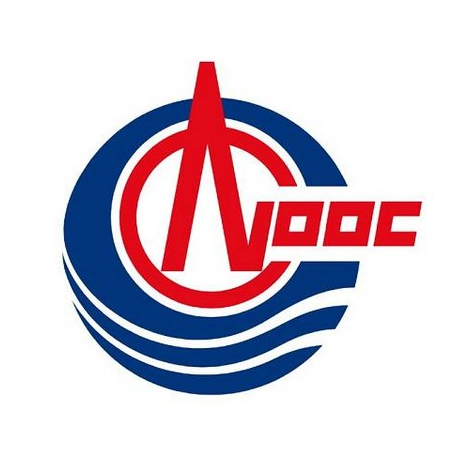CNOOC Limited (NYSE:CEO)’s handsome $15.1 billion offer for Nexen Inc. (NYSE:NXY), a generous 61% premium on the latter’s July 23, 2012, closing share price, has already gained the approval of 99% of Nexen common shareholders. Yet because CNOOC is a state-owned Chinese enterprise, it faces unique hurdles to winning regulatory approval from both the Canadian and American governments, which may threaten to undo an otherwise attractive business deal.

According to the Investment Canada Act, the Canadian government is empowered to reject any foreign acquisition attempt that does not provide a “net benefit” to Canada. The act provides the necessary institutionalized cover for whatever political acrobatics are needed to accept or reject an acquisition, depending the prevailing political climate. The government can also choose to impose conditions on the deal, such as a guaranteed level of domestic investment or a certain commitment to create a given number of jobs, rather than accept or reject it outright.
Gaining approval of the deal from U.S. authorities will be more difficult given the charged atmosphere of trade relations between the U.S. and China as well as a general American unease over China’s growing international influence. However, because only 10% of Nexen’s assets are in the United States, the American government cannot block the deal, it can only force CNOOC to comply with certain conditions for operating in the country or (in a worst case scenario for CNOOC) force it to divest its American assets. Thus, primary responsibility for the fate of the acquisition will fall on the Canadian government.
Unfortunately for CNOOC, a recent insider trading scandal related to the deal has cast a spotlight on rampant opportunities for corruption buried in the Chinese brand of state-led capitalism. The agency that governs all state-owned enterprises in China requires notification of an impending acquisition at a certain point in the progression of negotiations. It is possible that news of the Nexen offer filtered through the myriad Chinese bureaucracy to the perpetrators of the insider-trading scheme. Still worse, on October 8, 2012, the House Intelligence Committee released a report advising American companies not to purchase or use telecommunications equipment from Chinese telecom companies ZTE Corporation (SHE:000063) and Huawei Technology Co Ltd (SHE:002502) because the companies’ relationship with the Chinese government posed a long-term security risk. The report also recommended that regulators block ZTE and Hauwei from acquiring American companies.
Despite many formidable obstacles, proponents of the deal have several reasons to be optimistic. First, when CNOOC first attempted a foray into the U.S. market with a bid for Unocal in 2005, Chevron Corporation (NYSE:CVX) emerged as a competing bidder. Chevron could play the “American” card politically and generally handled the political situation with far more poise than CNOOC, which was knocked back on its heels buy the vehemence of the opposition to its offer. In contrast, no competing offer has emerged for Nexen.
Second, having learned from the Unocal blunder, CNOOC prepared a carefully crafted value proposition for all interested parties to the Nexen deal, including the generous offer to shareholders, a pledge by the company chairman not to pursue a hostile takeover, and carefully laid plans for CNOOC to invest billions in Canada. A spokesman for the company also promised to “maintain and enhance Nexen’s program of environmental protection and corporate social responsibility in the region.”
Third, the political atmosphere in Canada is more favorable than a decade earlier. Canadian officials now go to great lengths to attract foreign investment from China and the latter country is growing its consumption of Canadian oil at a rapid clip. The economic climate has changed considerably as well. In 2005, the Canada and the United States were growing fairly rapidly, unemployment in both countries was low compared to present levels, and global growth prospects (an important concern for oil-rich Canada) were much more rosy. Moreover, the U.S. congressional report criticizing ZTE and Huawei cited the companies’ failure to provide sufficient information regarding its ties to the Chinese government. In contrast, CNOOC has gone to great lengths to promote corporate transparency and has a track record of operational independence.
Finally, CNOOC already has interests in three Canadian companies, including a 60% stake in Yukon, as well as minority interests in shale assets in the United States.
Despite CNOOC’s record of independent operation and sound administration, the company is owned by the Chinese national government. Opponents of the deal argue that this constitutes a sufficient security threat to block the acquisition of Nexen. Yet foreign corporations, regardless of ownership, must play by domestic rules and regulations. Both Canada and the United States can and should impose additional conditions on the deal to ensure a “net benefit” for each country. Failure to hold foreign companies accountable for operational failures and societal externalities is certainly a political issue, but one that should attract public ire for the failure of domestic governments to properly enforce its own laws.
The appropriate authorities are prosecuting the CNOOC-Nexen insider-trading scandal and analysts do not expect the incident to impact the rulings on the deal very substantially. The Huawei and ZTE report is more worrying from the perspective of operating in the United States in future periods, but the main event is in Canada and the ultimate fate of the deal will be determined there.
The real irony in this story of political wrangling is that the Chinese government freely buys and sells trillions of dollars of U.S. government securities. The U.S. government even encourages such purchases. But a Chinese state-owned enterprise possessing several billion dollars worth of North American oil and gas assets apparently crosses the line. Barring the emergence of an unforeseen black eye on CNOOC, economic liberalism will hopefully trump political motivations this time around.





